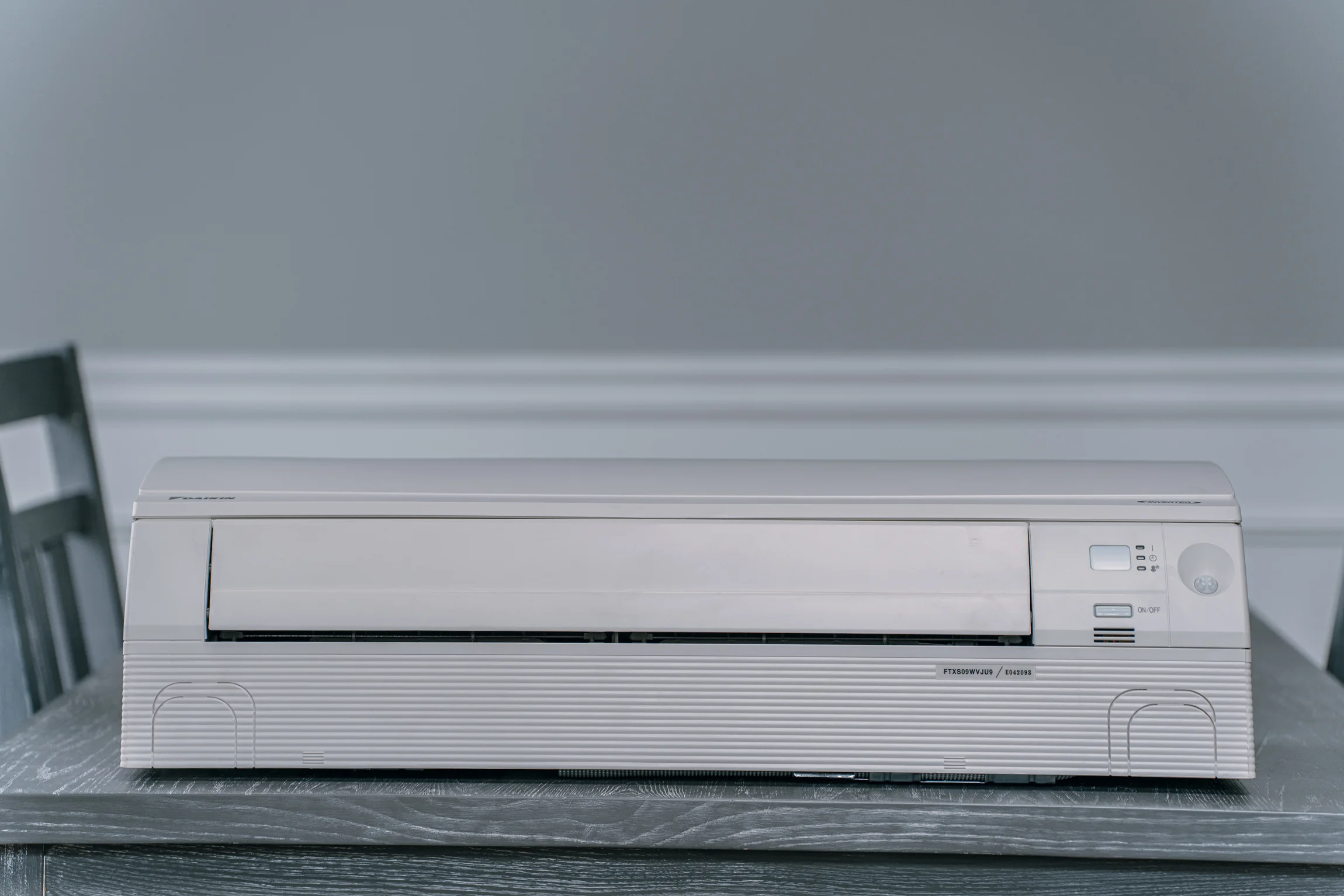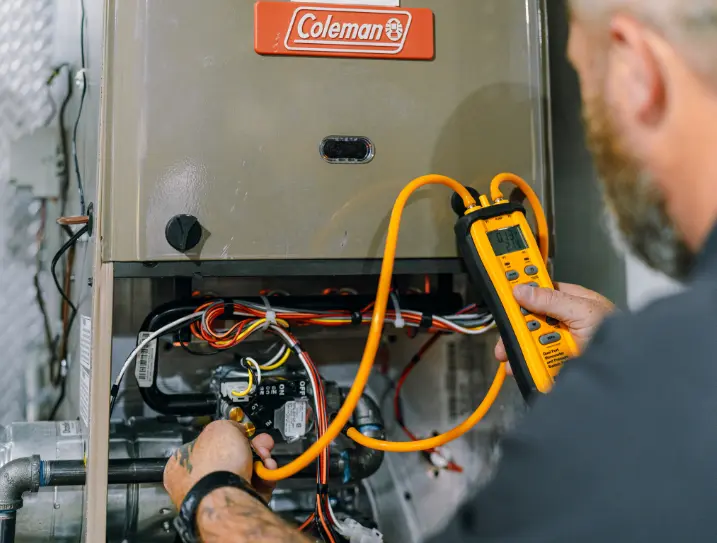When it comes to maintaining a comfortable and healthy home environment, there are lots of moving parts. Choosing the right HVAC system for your home is just one of those. HVAC stands for heating, ventilation, and air conditioning–meaning they regulate your indoor air quality and temperature. At a glance, it may seem confusing or even complicated to determine which unit works best for your unique situation, but it doesn’t have to be. We care about your infinite comfort, whether it comes by our hands or through your own knowledge. This article will guide you through the various types of HVAC units, their benefits, and how to choose the right system for your home.
Types of HVAC Units
The first step of choosing a HVAC system to fit your needs is to understand the options. Let’s dive into the advantages and disadvantages of each type of system, learning just what your options are.
Central Air Conditioning Systems
Central air conditioning systems are one of the most common types of HVAC systems. These systems use a network of ducts to distribute cool air throughout the house.
How Central Air Conditioning Works
Central air conditioning systems consist of an outdoor unit that contains the condenser and compressor, and an indoor unit that houses the evaporator coil and air handler. The system works by circulating refrigerant between the indoor and outdoor units, absorbing heat from the indoor air and releasing it outside.
Pros and Cons of Central Air Conditioning
Pros:
- Efficient cooling for entire homes
- Better indoor air quality with proper filtration
- Consistent temperature throughout the home
Cons:
- Higher installation costs
- Requires ductwork
- Potential energy loss through ducts
Best Use Cases for Central Air Conditioning
Central air conditioning systems are ideal for larger homes where consistent cooling is needed across multiple rooms.
Heat Pumps
Heat pumps are versatile systems that provide both heating and cooling.
Types of Heat Pumps
- Air Source Heat Pumps: These units transfer heat between the air inside and outside your home.
- Ground Source (Geothermal) Heat Pumps: These units transfer heat between your home and the ground, offering higher efficiency.
How Heat Pumps Work
Heat pumps use a refrigerant to transfer heat. In the summer, they extract heat from the indoor air and release it outside. In the winter, they do the reverse, extracting heat from the outside air (or ground) and releasing it indoors.
Advantages and Disadvantages of Heat Pumps
Advantages:
- Energy-efficient
- Provides both heating and cooling
- Lower operational costs
Disadvantages:
- Higher initial costs
- Performance can vary with extreme temperatures
Ductless Mini-Split Systems
Ductless mini-split systems offer a flexible and efficient solution for homes without ductwork.
Functionality of Ductless Mini-Split Systems
These systems consist of an outdoor unit and one or more indoor units. The indoor units are mounted on walls and connected to the outdoor unit via a conduit.
Benefits of Ductless Systems
- Zoned cooling and heating
- Easy installation
- Energy-efficient
Ideal Scenarios for Ductless Mini-Splits
Ductless mini-splits are perfect for homes without existing ductwork or for adding temperature control to specific rooms.
Window Air Conditioning Units
Window air conditioning units are compact systems designed to cool a single room.
Installation and Operation
These units are installed in a window and work by drawing warm air from the room, cooling it, and then releasing the cooled air back into the room.
Pros and Cons of Window Units
Pros:
- Low initial cost
- Easy to install
- Portable
Cons:
- Limited cooling capacity
- Can obstruct the view from windows
- Higher noise levels
When to Consider Window AC Units
Window air conditioners are ideal for cooling small spaces or individual rooms, but not for the whole home. If you are looking to install a system for an entire home, these will most likely not fit the bill.
Portable Air Conditioners
Portable air conditioners are self-contained units that can be moved from room to room. These units can be easily transported and set up in different rooms, providing cooling where it’s needed most.
Benefits and Drawbacks
Benefits:
- Easy to move and install
- No permanent installation required
Drawbacks:
- Limited cooling capacity
- Requires a window for exhaust hose
- Can be noisy
Best Situations for Portable Air Conditioners
Portable air conditioners are suitable for temporary cooling needs or for renters who cannot install permanent units.
Hybrid HVAC Systems
Hybrid HVAC systems combine different heating and cooling technologies to maximize efficiency.
Combining Different Heating and Cooling Technologies
Hybrid systems typically combine a heat pump with a furnace, switching between the two based on the outside temperature to maintain efficiency.
Energy Efficiency of Hybrid Systems
By using the most efficient heating or cooling method for the conditions, hybrid systems can significantly reduce energy usage and costs.
Ideal Homes for Hybrid HVAC Systems
Hybrid systems are ideal for regions with moderate temperatures where neither extreme heat nor cold is prevalent.
Geothermal Heating and Cooling Systems
Geothermal systems are highly efficient and environmentally friendly HVAC options.
How Geothermal Systems Operate
These systems use the stable temperatures of the ground to transfer heat, providing heating in the winter and cooling in the summer.
Environmental Benefits
- Reduces greenhouse gas emissions
- Lowers energy consumption
- Uses renewable energy source
Cost Considerations
While geothermal systems have higher upfront costs, they offer significant savings on energy bills over time.
Packaged Heating and Air Conditioning Systems
Packaged systems house all components in a single unit, typically installed on the roof or a concrete slab.
What Are Packaged Systems?
These systems contain the compressor, condenser, and evaporator in one unit, which is connected to the home’s ductwork.
Benefits and Limitations
Benefits:
- Space-saving design
- Easier installation and maintenance
Limitations:
- Higher noise levels
- Limited to smaller homes or specific applications
Best Applications for Packaged Systems
Packaged systems are suitable for homes with limited indoor space or for use in commercial settings.
Other HVAC Technologies
Radiant Heating Systems
Radiant heating systems provide heat directly to the floor or panels in the walls or ceiling, offering efficient and comfortable heating.
Evaporative Coolers
Evaporative coolers, also known as swamp coolers, use the evaporation of water to cool the air, providing an energy-efficient alternative to traditional air conditioning.
Smart HVAC Systems
Smart HVAC systems integrate advanced technology to offer automated and optimized control over your heating and cooling, often managed through a smartphone app.
Choosing the Right HVAC System for Your Home
Consider the size of your home, your climate, and your specific heating and cooling needs when choosing an HVAC system. Look for systems with high SEER (Seasonal Energy Efficiency Ratio) and HSPF (Heating Seasonal Performance Factor) ratings for maximum efficiency. While some systems have higher upfront costs, they may offer greater savings on energy bills in the long run.
Final Thoughts
Understanding the different types of HVAC systems is crucial for maintaining a comfortable and healthy home. From central air conditioning systems to geothermal heating, each type offers unique benefits and drawbacks. By really looking at your home’s needs and considering factors such as energy efficiency and budget, you can choose the right HVAC system for your home.
Why Choose Infinity Cleaning and Air
Here at Infinity, we care about keeping our neighbor’s home environments clean and comfortable. Our top priority is providing quality service and solutions that these neighbors can trust. The great thing is, you are those neighbors. Here in Pierce County, from Puyallup to Tacoma, we specialize in the heating and cooling of your home, with both air duct and heater repair and installation. Our team of air-quality experts are dedicated to providing full-spectrum HVAC and air quality services to ensure your home enjoys endless comfort in every season.





